Here’s 5 things you need to know about the Tories’ history of LGBT+ rights
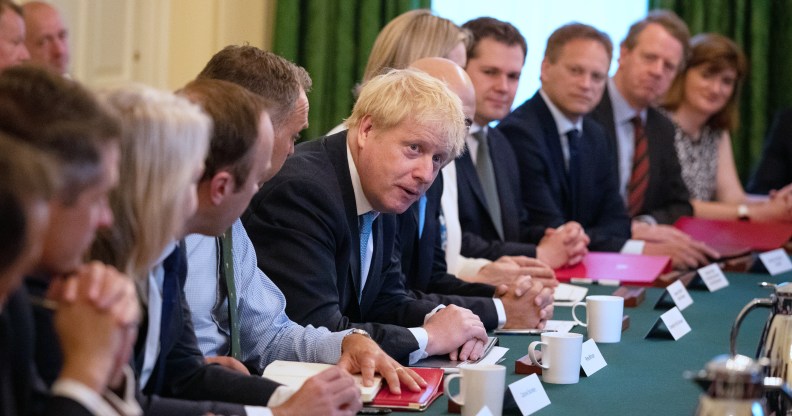
Prime Minister Boris Johnson presides over his first Cabinet meeting at 10 Downing Street on July 25, 2019. (Aaron Chown – WPA Pool/Getty)
Two changes in Conservative prime minister, two general elections and a parliament paralysed after years of stalled Brexit negations; today’s UK general election is one of the most important in a generation.
The country is divided. Torn by trade talks and uncertainty, voters today are swinging by locals schools and rented out community halls to tick a box that will shape the country for years to come.
But as anxieties around public health and the economy dominate headlines, LGBT+ right should not be swept under the covers.
With all to play for this election season, we’ve written guides of the things to know about each of the five major UK parties vying for lawmaker’s seats.
Here are the top five things to know about the Conservative Party’s LGBT+ history:
1. Its current leader, Boris Johnson, has a blotchy background with supporting LGBT+ rights.
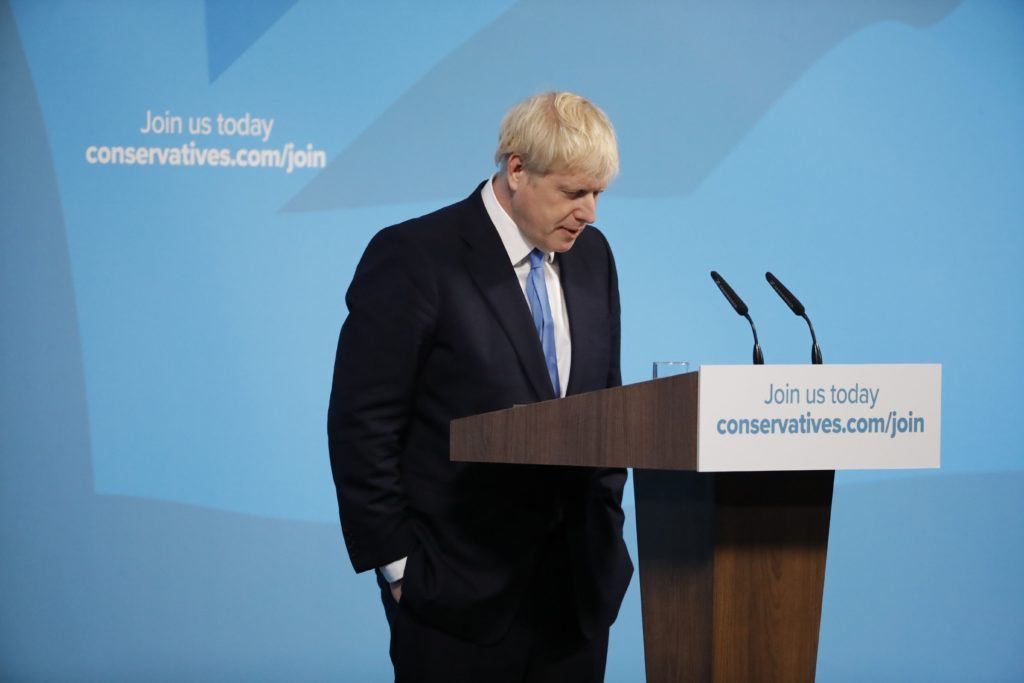
New Conservative Party leader and incoming prime minister Boris Johnson gives a speech at an event to announce the winner of the Conservative Party leadership contest in central London on July 23, 2019. (TOLGA AKMEN/AFP/Getty)
There’s a high chance that, as an LGBT+ person yourself or an ally, that the term ‘tank-topped bum boys’ has been battering your Twitter timeline.
As a then Telegraph columnist, Boris Johnson used the phrase in a 1998 article. He went onto liken same-sex marriage to three men marrying a dog in a book a few years later.
These terms have haunted his political ascent since, especially as reporters and activists pelt him with calls to apologise; something he has still yet to do.
Moreover, during his stint as prime minister this year, he chaired what Labour dubbed the most homophobic cabinet in recent history, with multiple policy-makers in the top jobs having opposed marriage equality.
Although, his voting record is, in fact, generally positive, at times rebelling from other blue tie politicians to support queer rights.
He voted positively in several early reforms: to abolish Section 28, to introduce civil partnerships and to support the Gender Recognition Act.
Johnson, then mayor of London, became the first high-profile Tory to back equal marriage. But, as a result, he was not an MP when the vote was drawn.
But after rejoining Parliament, he abstained when the vote was cast to the lower house to vote on same-sex marriage in Northern Ireland.
In addition, Johnson did not join other Tory rebels in backing the Equality Act (Sexual Orientation) Regulations, which introduced discrimination protections for gay people.
2. Section 28 was introduced by a Tory government.
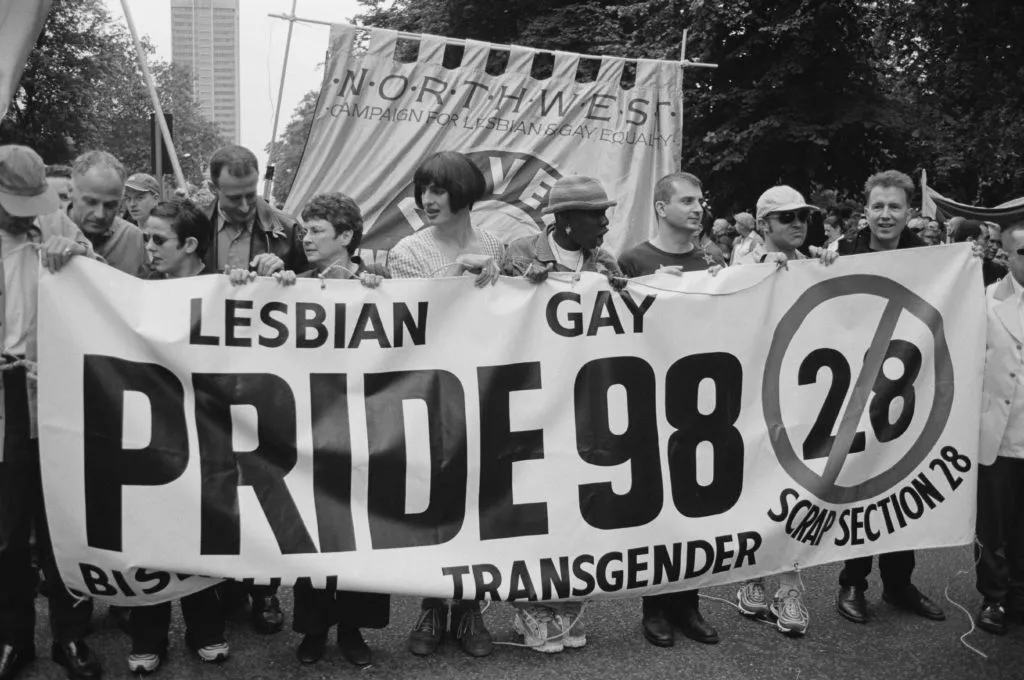
Celebrities help to hold a banner opposing Section 28, at the Lesbian, Gay, Bisexual, and Transgender Pride event, London, 4th July 1998. (Steve Eason/Hulton Archive/Getty Images)
In 1988, as the community was edged by fear and abuse amid the AIDS crisis, Parliament passed a law.
A law that banned schools from teaching “the acceptability of homosexuality as a pretended family relationship”.
A clause that blanketed the country in silence around the LGBT+ community, stonewalling a generation of queer teens.
This was at a time when 75% of the British public believed being gay was wrong, attitude surveys at the time showed.
For Margaret Thatcher, Section 28 became a plank of her Conservative administration’s anti-gay stance. It was first introduced by Tory lawmaker Jill Knight (who campaigned against marriage equality) before, finally, being repealed by Labour party lawmakers in 2003.
3. The Conservative Party have tried to modernise their image.
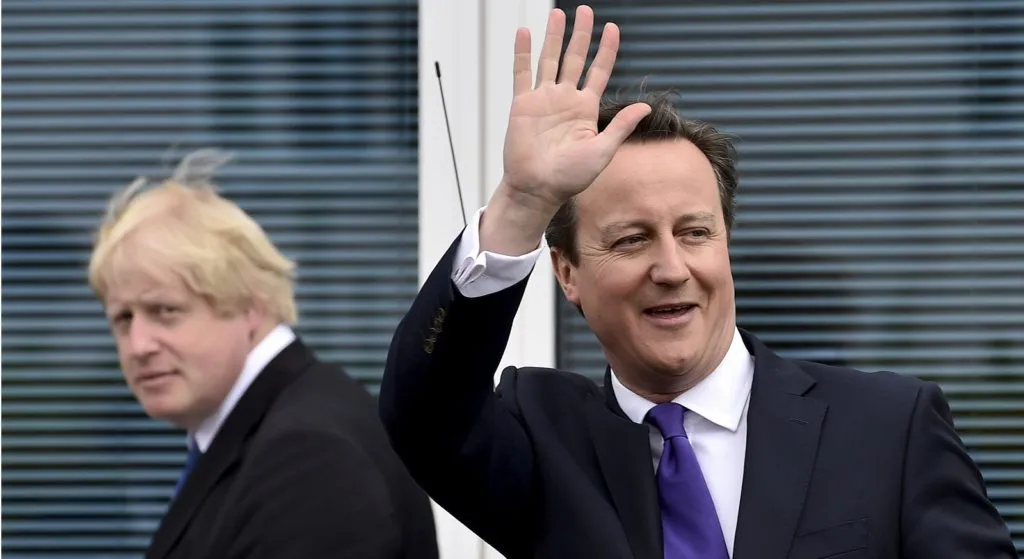
Then British prime minister David Cameron (R) and mayor of London Boris Johnson. (TOBY MELVILLE/AFP/Getty Images)
It’s no secret that the party have been on a journey more than any other in LGBT+ rights.
Throughout the teenies, a number of party premiers made efforts to build a bridge with the community considering the party’s shaky legislative history.
In 2009, David Cameron apologised for Section 28 – a vicious law that banned the ‘promotion’ of homosexuality in schools – while speaking at a Pink Paper event.
Before the 2010 election, Cameron had promised a PinkNews reader in a Q&A that he would consider the case for same-sex marriage.
The Conservative’s equality manifesto, authored by Theresa May before the 2010 election, also committed the party to considering the case for same-sex marriage.
Ultimately, the Conservative and Liberal Democrat coalition moved to extend the right of marriage to same-sex couples.
While ahead of the first same-sex weddings in the UK, which took place in March 2014, Cameron wrote for PinkNews that marriage is “a wonderful institution” that should be “available to gay people and lesbians”.
Although, Cameron failed to persuade the majority of Tory MPs to vote in favour of same-sex marriage. Around 139 Tories, including two cabinet ministers, rebelled against the Government with just 132 supporting the measure, there were 75 abstentions.
A measure to make LGBT+ positive sex and relationship education was also passed under a Tory government. However, the bulk of opposers were from the party itself.
4 . Conservative lawmakers were actually the first to move to decriminalise homosexuality.
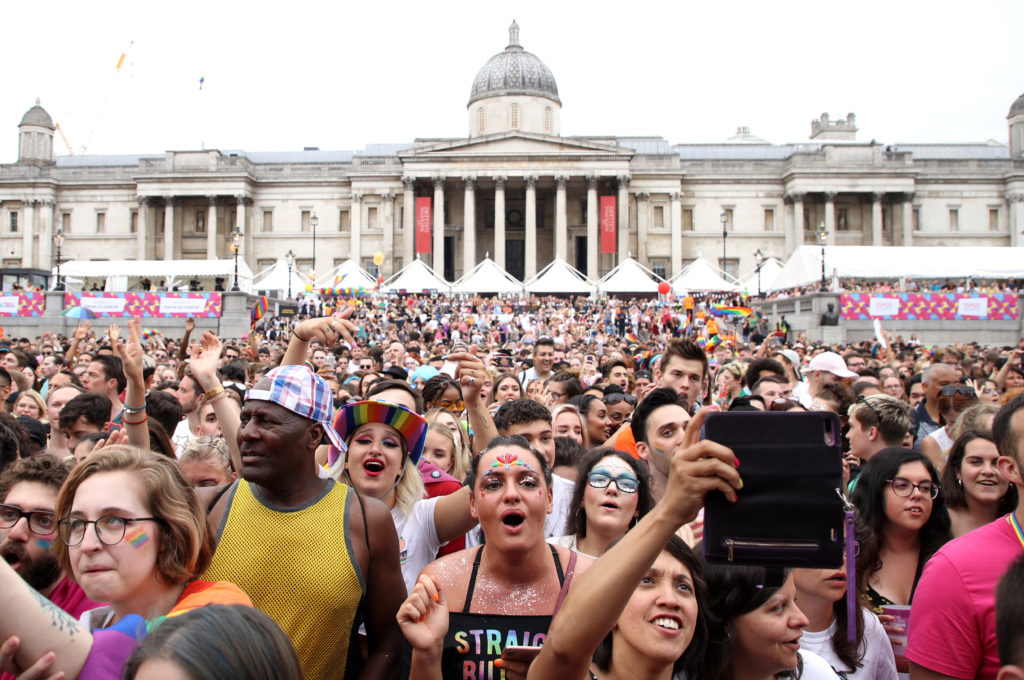
A general view of the crowd during Pride in London 2019 at Trafalgar Square on July 06, 2019 in London, England. (Mike Marsland/Getty Pride in London)
Homosexuality was decriminalised in 1967 under Harold Wilson’s Labour Government.
His cabinet officially remained neutral on the policy shift and allowed a free vote.
But the move to do so was spurred in 1854 under the reconditions by the Wolfenden Committee, set up by a Conservative government.
In 1965, Tory MP Humphrey Berkeley, who was gay, pitched a private members bill to decriminalise homosexuality in line with the committee’s conclusion.
It did pass in its second reading in 1966, but dissolved due to the general election that year. he was defeated in the race, meaning it fell to Labour lawmaker Leo Abse to sponsor the bill.
While efforts to push within the upper House of Lords were helmet by Tory Lord Arthur Gore, following the death of his gay brother who died by suicide.
Arran was the sponsor in the House of Lords of Abse’s 1967 private member’s bill which, as the Sexual Offences Act 1967.
5. Waves upon waves of Conservative politicians have delayed crucial trans-positive legislation.
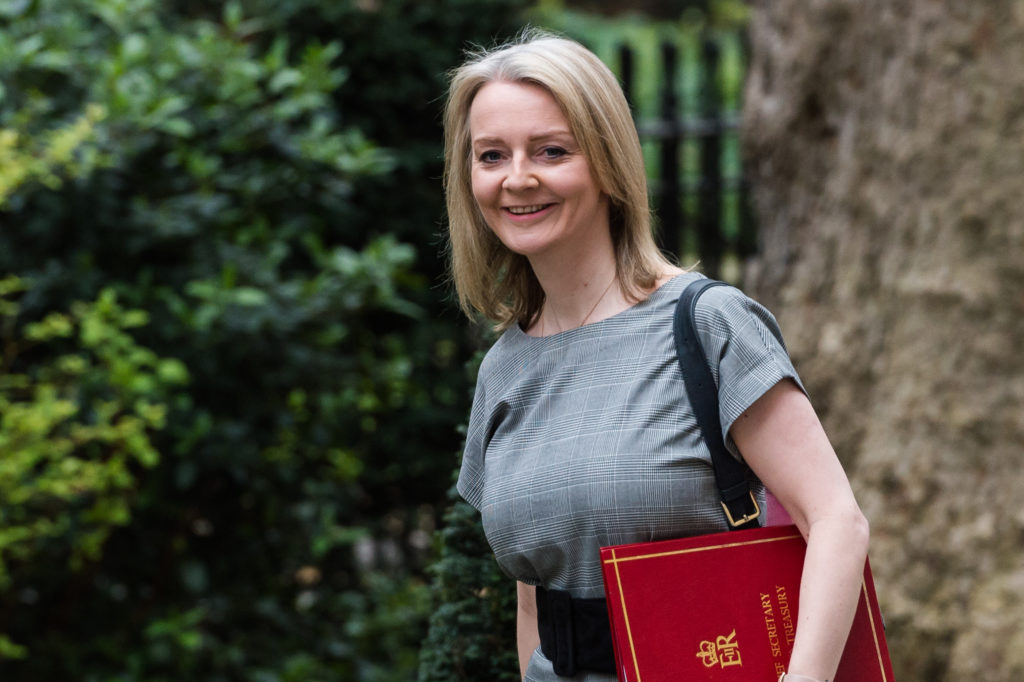
Liz Truss is the new minister for women and equalities. (Getty)
Crucial reforms to the Gender Recognition Act – the bedrock of trans rights in the nation – have been consistently delayed. Buried under Brexit talks and the succession of ministers who lead it.
We’ve had five women and equalities ministers since Theresa May announced reform plans in a 2017 PinkNews article.
Speaking at the PinkNews Awards 2017, May vowed to “streamline” the GRA, to make it easier for trans people to change their legal gender.
But in the years since, promises piled up fast. Ministers have announced delays, teasing its alleged inevitable arrival. Yet, nothing.
The hampered proposals eclipse the 16-week public consultation was held on how and whether to reform the GRA in 2018. It was anticipated by advocates that possible reforms would enable trans folk to self-identity.
Currently, trans people must prove they have lived in their gender for two years and have a medical diagnosis of gender dysphoria, after which their application for a Gender Recognition Certificate is approved – or refused – by a panel of people who don’t meet them.
Former defence secretary and then equalities minister Penny Mordaunt confirmed to PinkNews in July that the results of the consultation would be announced “as soon as possible.”
However, on July 24, the day Johnson took office, an equalities office spokesperson confirmed that the response had been delayed.
Speaking to PinkNews this week, Johnson re-affirmed his party’s intention to introduce the reforms, which will be “announced in due course”.

